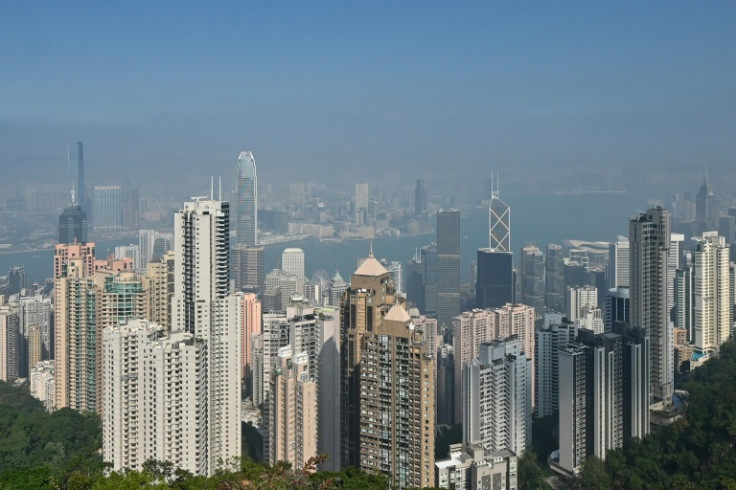Hong Kong Issues Bounties For 19 Overseas Activists On Subversion Charges

Hong Kong police announced bounties Friday for information leading to the arrest of 19 overseas activists, accusing them of national security crimes.
Political dissent in Hong Kong has been quashed since Beijing imposed a sweeping national security law in 2020 after huge, sometimes violent pro-democracy protests the year before.
Many opposition figures have fled abroad, while others have been arrested and sentenced to years in jail.
Police said the 19 activists were involved in what they called a "subversive organisation", Hong Kong Parliament -- a pro-democracy NGO established in Canada.
On July 1, Hong Kong Parliament said on social media that it was holding an unofficial poll online to form a "legislature", aimed at "opposing one-party dictatorship and tyranny and pursuing Hong Kong people ruling Hong Kong".
In a statement on Friday, police accused the group of seeking to "unlawfully overthrow and undermine the fundamental system" of the Chinese and Hong Kong authorities.
A reward of HK$200,000 ($25,500) each was offered for 15 of the activists, while the four others were already wanted for HK$1 million, the statement said.
The bounties are seen as largely symbolic given that they affect people living abroad in nations unlikely to extradite political activists to Hong Kong or China.
Friday's announcement is the fourth time the financial hub's authorities have offered rewards for help capturing those alleged to have violated the city's national security laws.
Previous rounds of bounties were met with intense criticism from Western countries, with Hong Kong and China in turn railing against "interference" from foreign countries.
Hong Kong has also previously cancelled the passports of other pro-democracy activists on its wanted list, under its second homegrown national security law enacted in 2024.
The 2020 national security law criminalised for the first time secession, subversion, terrorism and foreign collusion, with offenders facing up to life imprisonment.
Scores of pro-democracy and civil society groups, including trade unions and media outlets, have closed.
As of July 1, authorities had arrested 333 people for alleged national security crimes, with 165 convicted in Hong Kong.
Earlier this month, Hong Kong police arrested four people, including a 15-year-old, who were allegedly part of a group in Taiwan that called for the overthrow of the Chinese Communist Party.
This week police said they had arrested an 18-year-old for writing "seditious words" on a toilet wall in a commercial building.
© Copyright AFP {{Year}}. All rights reserved.





















